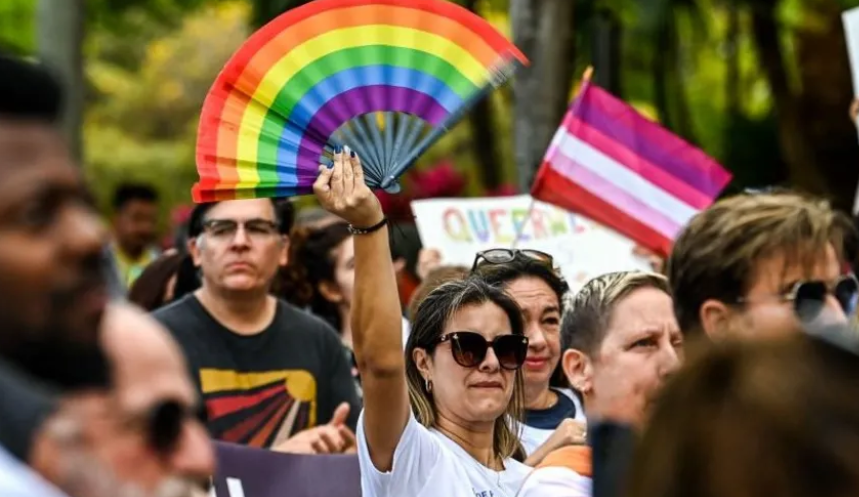In a recent legal settlement announced on Monday, Florida has seen a significant development regarding the discussion of gender identity and sexual orientation in classrooms. This settlement brings clarity to the interpretation of a contentious state education law, albeit without overturning it.
The legal dispute arose from challenges against Florida’s 2022 parental rights bill, which opponents argued could potentially marginalize LGBT youth within the state’s educational system. The settlement marks a pivotal moment in clarifying the parameters of this law while allowing for discussions on gender identity and sexual orientation within certain bounds.
Roberta Kaplan, lead attorney in the lawsuit, hailed the settlement as a victory for the LGBTQ+ community and its allies across Florida. She emphasized that the clarity provided by the settlement was long overdue and represented a significant step forward for inclusivity in education.
On the other side, Florida Governor Ron DeSantis’s office celebrated the settlement as a “major win,” asserting their efforts to ensure the law’s integrity both in the courts and in public discourse. They reiterated their stance that the law was unfairly misrepresented by critics.
Initially dubbed the “Don’t Say Gay” bill by critics, the Parental Rights in Education Act had stirred controversy by originally prohibiting classroom instruction on gender identity and sexual orientation in kindergarten through third grade. This prohibition was later expanded to encompass all grades up to high school, prompting widespread backlash.
Critics argued that the vague language of the law could create a chilling effect in schools, leading to confusion among teachers about what topics could be discussed with students, including matters related to their family lives.
The settlement provides crucial clarification by distinguishing between instruction and discussion. While formal instruction on gender identity and sexual orientation is restricted, incidental references in literature or extracurricular activities are permitted. This distinction aims to prevent undue censorship while maintaining boundaries within the educational curriculum.
Under the settlement terms, references to LGBT individuals or same-sex relationships in literature, as well as activities like school dances or participation in Gay-Straight Alliances, remain permissible. Importantly, the law is deemed neutral, meaning that restrictions apply equally to discussions of LGBT and heterosexual topics.
Moreover, the settlement explicitly delineates exceptions, such as references to LGBTQ issues in library books not used for instruction. It also ensures that students retain the right to participate in extracurricular activities supportive of LGBTQ inclusion.
The Florida Department of Education is tasked with disseminating the terms of the settlement and the guidelines it establishes to school boards across the state. This dissemination aims to ensure consistent implementation and understanding of the law’s parameters in all state school districts.
Overall, the settlement represents a delicate balance between respecting parental concerns and safeguarding the rights and well-being of LGBTQ students. It acknowledges the importance of inclusive education while addressing concerns about age-appropriate discussions in the classroom. As Florida moves forward, this settlement serves as a significant milestone in navigating the intersection of education, parental rights, and LGBTQ rights within the state’s educational framework.

